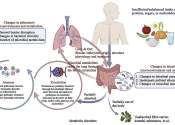Plasma metabolite biomarker could help identify who is at risk of a heart attack
Myocardial infarction, more commonly known as a heart attack, is a leading cause of death worldwide. Biomarkers called plasma metabolites may play a key role in the physiological pathways involved in myocardial infarctions. ...
Apr 17, 2024
0
4









